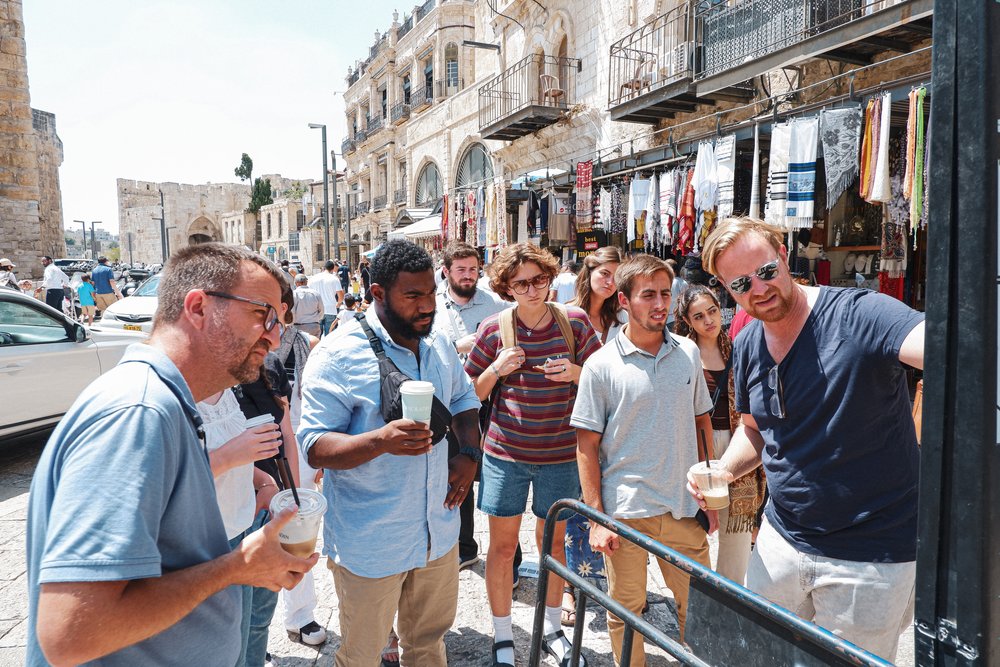I interviewed Dr. Jason Sexton, a sociologist who studies theology and the prison system, and the ways they intersect. We met before his talk on his new academic work that will soon be published; the prison and its eugenic logic. During our meeting, we discussed his thoughts and ideas on my research project, and touched on his advice for me regarding how to go forward in the field of law, specifically working towards post-conviction representation.
During my meeting with Dr. Sexton, he told me a bit about his personal background and how he was formerly incarcerated. I won’t repeat what he told me about this, as I didn’t get his express permission to do so. I did, however, find what he told me very interesting, as being in any U.S. carceral system is sure to be an extremely difficult experience; making the things he achieved after being released even more admirable. He received a PhD from the University of St. Andrews, after which he became a professor of sociology at UCLA.
He suggested a few pieces of literature to me which I’ve been looking into, and I’m sure will be helpful to the theory I will later use to justify my study’s findings: Discipline and Punish by Foucault, an academic journal titled Punishment and Society, which he mentioned discusses the length of exoneration processes of POC vs non-POC, Robert Ferguson’s work (specifically Inferno and Anatomy of American Punishment) and other broader sociological examinations of punishment and the prison system. He also suggested to me to look at an article titled “The Criminal Is to Go Free” by Johnathan Simon- which brings up the doctrine first written about by Supreme Court Justice Benjamin Cardozo, “the criminal is to go free because the constable has blundered”. This phrase and doctrine was recently brought up by Chief Justice Roberts and cited in Haring vs. U.S.; evidence obtained through a violation of one’s constitutional rights cannot be used against them. We discussed how this idea seems to be incongruent with the notion that the law can’t admit it’s wrong and maintain authority. This, along with the other theory and explanations for my findings we discussed, was one of my main takeaways from our interview. I think this idea of the constable and the criminal will be very important in my theoretical analysis, and I intend to read further into the topic.
Dr. Sexton also made a few suggestions on how to analyze the data I have. He added that I should consider looking into class issues, and how financial means can greatly affect one’s experience in the justice system. He believes that class is also a very important demographic to look at, specifically examining who the law more readily punishes, in addition to race. One of my other main takeaways from our interview was that I can, and should, critique the system within my explanation of my results. Evidently I understand that there are many problems within the justice system, but I didn’t feel I had the authority to properly critique them. Dr. Sexton gave me the idea of adding his research findings and Griset lecture topic to my study; that the American prison comes from persistent eugenic logic. Additionally, he also mentioned something in our meeting that stood out to me; DNA and DNA exonerations will not change the system. Even though this may seem evident, I had not thought of prescribing remedies to the system in this way. DNA evidence truly does not prevent racial, gender, or class prejudice. I intend to look further into this, both for my capstone and personal interest. This felt like a big step forward to me in this research project, because I will now look into DNA vs. non-DNA exonerations, and possibly how race or class plays a role in who gets access to DNA analysis. Relatedly, Dr. Sexton and I discussed the exploitative plea bargaining system in the U.S., and how I could incorporate critiques of this system within my research.
He also had some professional advice for me: to apply to UC Berkeley law, UCI law, and UC Hastings law. He also encouraged me to keep my GPA up, and continue to pursue work at the Innocence Project.
Related articles on the “the criminal is to go free because the constable has blundered”, and work by Dr. Sexton:
- https://www.crimrxiv.com/pub/va4ejpb2/release/1
- https://www.ojp.gov/ncjrs/virtual-library/abstracts/should-criminal-go-free-because-constable-has-blundered
- https://www.juvenile-in-justice.com/jijblog/tag/Jason+Sexton















